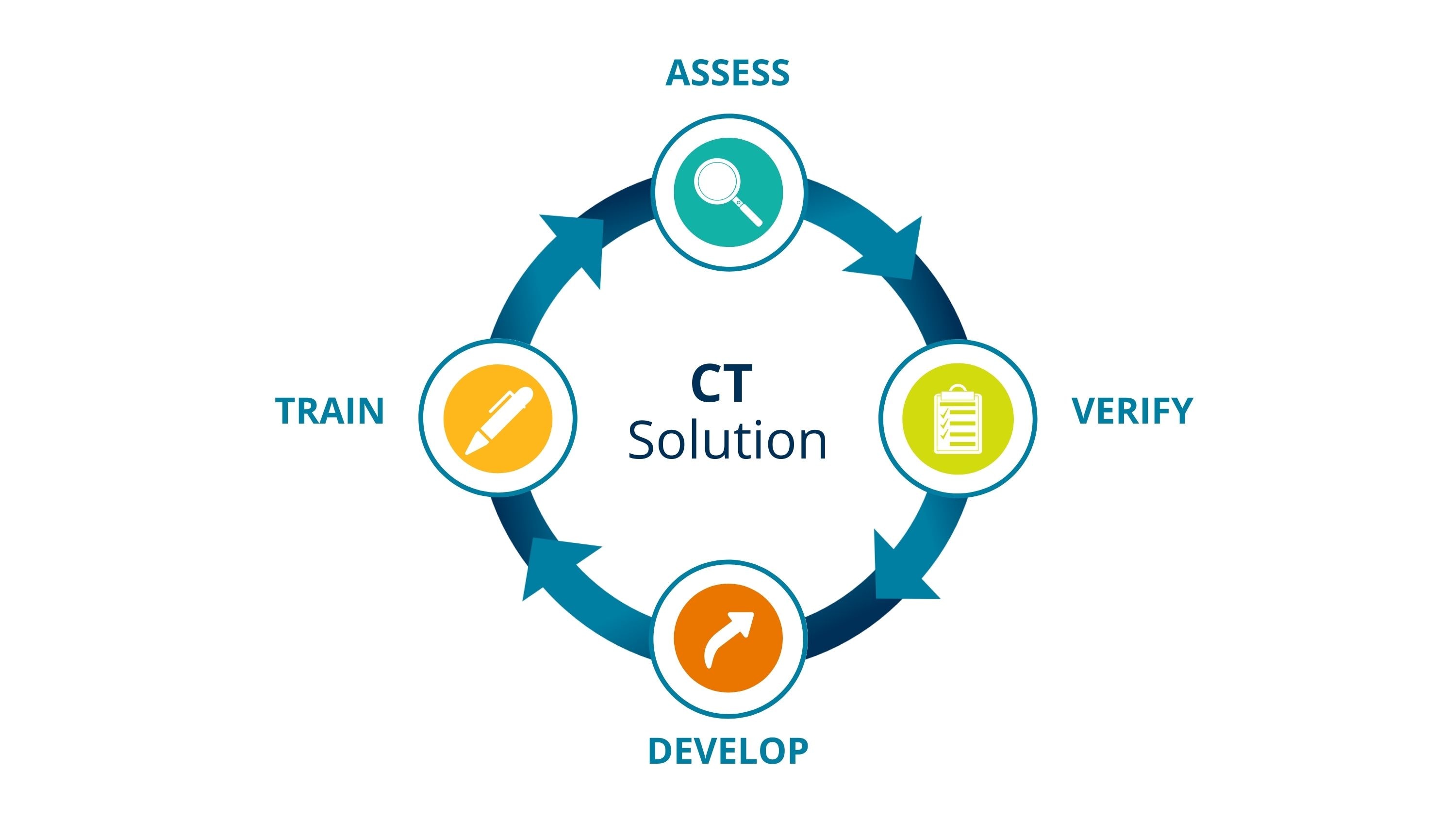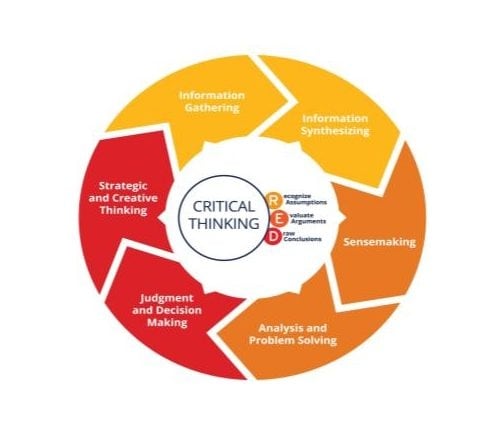Critical Thinking Hub
With over 5 billion searches being made on the internet each day, separating fact from fiction and evaluating arguments well is a key skill in today’s increasingly busy world. Critical Thinking makes the difference between good leaders and excellent leaders.
What is critical thinking?
Critical Thinking is the ability to look at a situation and clearly understand it from multiple perspectives whilst separating facts from opinions and assumptions.
TalentLens can help you to assess candidates’ critical thinking skills during recruitment and develop the critical thinking of existing employees.
"Critical thinking ability is not just a workplace skill it’s a life skill. It’s something that traverses multiple sectors, so is relevant to your daily life as well.”

Why is critical thinking important?
The way organisations ‘do’ business is changing, and while the world adjusts many employers are taking time to assess how they recruit staff, the skills required and how to best support their wellbeing and development. Now more than ever, organisations will be looking for employees who show strong critical thinking ability. Being able to analyse information, draw conclusions and activate plans – without supervision will be key to performance and innovation.
Research shows that there is a strong link between creativity and critical thinking, which results in greater opportunities for innovation and development.
“When critical thinking is applied to innovation, warning signs and red flags are thoroughly and carefully considered—and in fact are used to make the innovation better. Critical thinking is actually made part of the creative process.”
Critical Thinking is also an excellent predictor of performance in complex jobs. Not only can this help reduce the cost of a bad hire; once organisations understand the role of Critical Thinking, they can take steps to identify and develop that skill in their leaders and employees.
How can you develop/improve critical thinking skills?
While Critical Thinking is a cognitive ability, it is linked to behaviour; by changing and modifying this we can evolve some areas of how we evaluate information and make decisions. Essentially developing your critical thinking skills is a life-long journey!
Pearson identified the RED model which consists of the key building blocks of critical thinking.
- Recognise Assumptions
- Evaluate Arguments
- Draw Conclusions

A fundamental starting point to improving CT is to take into account these steps, become more self-aware of when we are making assumptions and start to challenge our own thinking.
Coming soon - online Critical Thinking Training – informing and guiding your employees to making good decisions
How can I develop critical thinking skills?
- Alongside the training course, take a look at our whitepaper: Improving and Developing Critical Thinking – we’ve created a series of exercises that you can consider for each area of the RED model which will help you develop your ability.
- Watch our Quick Tip Sessions – a series of short video sessions looking at critical thinking ability and how to develop it.
How can I assess critical thinking ability?
One of the most widely used psychometric assessments is the Watson-Glaser Critical Thinking Appraisal, from Pearson TalentLens. The Watson-Glaser is used primarily in the context of recruitment to measure critical thinking ability levels in job, university and business school applicants. Available via our test platform it is a verbal ability test designed to measure critical thinking ability to:
- Analyse, interpret and draw logical conclusions from written information.
- Recognise assumptions from facts.
- Evaluate the strength of arguments.
- Draw correct inferences.
The test is now mandatory for anyone wishing to study to become a Barrister and has been introduced as standard practice across many industry professions.
Discover more about Watson-Glaser >>
How your organisation can gain insight into critical thinking ability with Pearson TalentLens
We’ve put together the following range of resources from whitepapers, and webinars to blog posts, interviews and published materials that can help you in developing critical thinking skills for yourself and your teams.
Whitepapers
Our range of whitepapers provide organisations and teams with important up-to-date insight into the role of critical thinking, its relationship with other key skills such as creativity, information on how to improve and develop critical thinking and measure this key skill; as well as research papers and case studies into businesses and universities who value critical thinking ability as a key measure for recruitment and development:
Critical Thinking Means Business
The Importance of Critical Thinking and How to Measure It
Creative & Critical Thinking – The Recipe for Innovation
On a Career Ladder: Critical Thinking Demands and Development
Understanding the Relationship Between Critical Thinking and Job Performance
Webinars and Recordings
Our on-demand and live webinars give you the opportunity to hear from our experts on the role critical thinking ability plays in the recruitment and development of employees.
Visit our webinar page for the latest downloads and future dates >>
 Play
Play
| Critical Thinking makes the difference between good leaders and excellent leaders. |
| Can be assessed using the Watson Glaser Critical Thinking Appraisal. |
| Coming soon - New Online Critical Thinking Training for team development. Face to Face Workshops will be back one day….. |
Insights
Regular insights to support organisations with the selection, recruitment, and development of candidates and employees. We use our expert knowledge to help guide you through why psychometrics matter and the key issues the recruitment industry is experiencing.
3 Steps to Developing Critical Thinking Skills
5 Barriers to Critical Thinking (and how to challenge them)
Podcast: Critical Thinking in Business
It’s the number one workplace skill, but how important is critical thinking? Tracy West, Leadership Consultant at Wickland Westcott, and Matt Stevens, Head of TalentLens UK discuss how to define critical thinking.
Related Pearson resources for students
The critical thinking journey is a life-long one, and many schools and universities see the value of helping students develop critical thinking skills early on. The following resources are available for students from Pearson:

